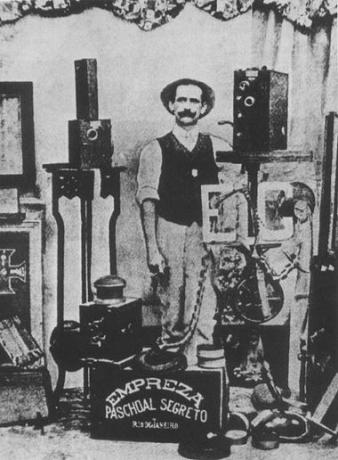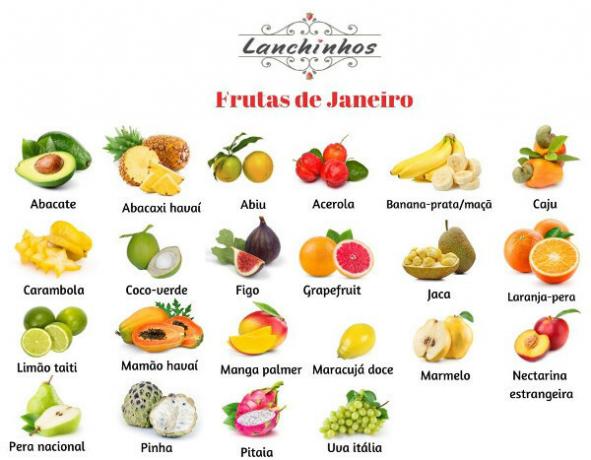O Brazilian Cinema Day is celebrated in June 19th. This date was chosen because it refers to what would have been the first day that images were made using cinematograph technology in Brazil, that is: the day June 19, 1898. Such images were recorded on board the ship. Brazil, who had left Boudeaux, France, where the Italian Afonso Segreto he had just finished a course on cinematograph operation and, from there, ended up bringing one of the equipment to Brazil. The images captured the scenery of Guanabara Bay, in Rio de Janeiro.
Some historians dispute the fact that Afonso made the first cinematographic images in Brazil, claiming that a year earlier (in 1897), in the city of Petrópolis, some films may have been recorded using a cinematograph model created by the scientist American Thomas Edison. Regardless of which were the first cinema images recorded in Brazil, the fact is that the surname “Segreto” became synonymous with pioneering in Brazilian cinema.
Read too: Oscar - the story of the most famous film awards in the world
Important names in the history of Brazilian cinema
Afonso Segreto was impelled by his brother, Secret Paschoal, who had also established himself in Brazil, traveling to various parts of the world in order to specialize in cinematographic techniques. We know that the first moving image producing machines date from the second half of the 19th century, the most famous being that of Thomas Edison, already mentioned, and that of the brothersLumiere, from France. Paschoal Segreto, who was an entertainment entrepreneur with a strong interest in theatre, soon became interested in the cinematographer and would end up creating the first film production company and the first magazine specializing in cinema in the Brazil.

In the early years of the 20th century, the Segreto brothers filmed dozens of films, thus taking the first steps to lay the foundations of cinema in Brazil. In the following decades, other personalities stood out in film production. In the 1930s, Humberto Mauro he stood out with films such as “Ganga Bruta” and “Alô, Alô Carnaval”, developing the “chanchada” genre, which had wide popular acceptance.
In the 1940s and 1950s, cinema continued with the creation of the first professional studios, like “Vera Cruz”, very inspired by Hollywood productions, which started to conquer the world in this era. In the 1960s and 1970s, Brazilian cinema took a great creative turn due to the “New Cinema”, inspired by the “NeorealismItalian" and on "NouvelleVague” French, having as main representatives: RuyWar, LuísSergioPerson, GlauberRock, NelsonPereiraFromsaints andJoaquimPeterof andrade.
In addition to this type of production, there was also the development of entertainment cinema associated with television channels, such as Globe Movies. In the 1990s and 2000s, a new wave of creative cut films with international prominence appeared in Brazil, especially in people from Carla Camuratti, Walter Salles, Fernando Meirelles and José Padilha. This entire trajectory of Brazilian cinema owes, directly or indirectly, to the brothers' venture Segreto, hence the day of honor is credited to the day Afonso Segreto made his recordings in the Bay of Guanabara.
By Me. Cláudio Fernandes
Source: Brazil School - https://brasilescola.uol.com.br/datas-comemorativas/dia-do-cinema-brasileiro.htm


